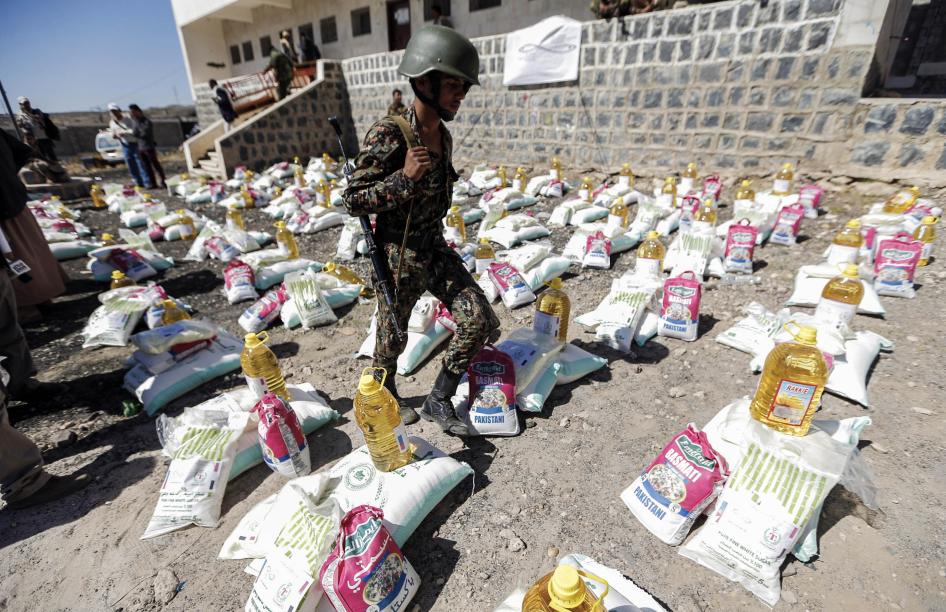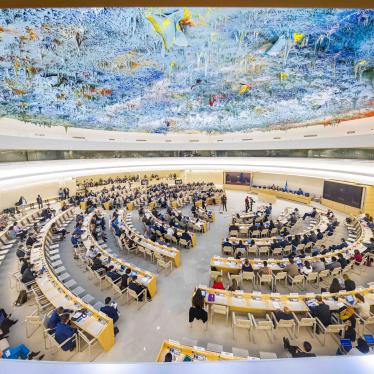We thank the Group of Eminent Experts for their report.
After nearly six years of conflict, the war in Yemen has caused the deaths of nearly a quarter-million people, including over 112,000 killed directly by hostilities. Millions of Yemenis are without adequate food, water, shelter, or health care. With Covid-19 threatening the lives and livelihoods of millions across Yemen, peace talks floundering, and airstrikes, shelling, and attacks impacting civilians once again increasing, the reality for millions of Yemeni civilians is growing ever more bleak.
The already dire humanitarian crisis has been compounded by obstruction of aid. The experts documented a range of conduct by parties to the conflict amounting to impeding humanitarian relief supplies in violation of international norms, either by unduly restricting access or by engaging in practices that undermine the ability of humanitarian organizations to carry out their work.
Human Rights Watch recently released a 65-page report dedicated to the issue (“Deadly Consequences: Obstruction of Aid in Yemen during Covid-19”), and we urge an independent review of the extent of aid obstruction in north and south Yemen since 2015 and the humanitarian community’s response.
The Group of Eminent Experts expressed concerns at states supplying arms to parties to the conflict, including to Saudi Arabia and the UAE, and we are encouraged to see language in the resolution urging all states “to refrain from transferring arms to any party to the conflict, when they assess an overriding risk that those arms could be used to commit or facilitate a serious violation of human rights law or international humanitarian law.”
The human rights and humanitarian catastrophe in Yemen is man-made and was avoidable.
This session, the Human Rights Council has the opportunity to pave the way toward credible accountability and redress for victims and their families in Yemen.
Human Rights Watch joined a recent letter by 24 Yemeni, regional, and international civil society organizations calling on the council to not only renew but to strengthen the GEE’s mandate this session, including to collect, consolidate, preserve, and analyze evidence of, and clarify responsibility for, the most serious international crimes and to prepare a dedicated report on practical steps to advance justice, redress and accountability.
We urge all delegations to support the resolution. The fact that the experts titled the presentation of their report: “A Pandemic of Impunity in a Tortured Land” should be a wake-up call that more is needed to break the cycle of impunity.







